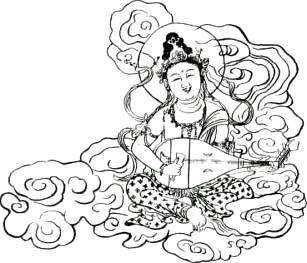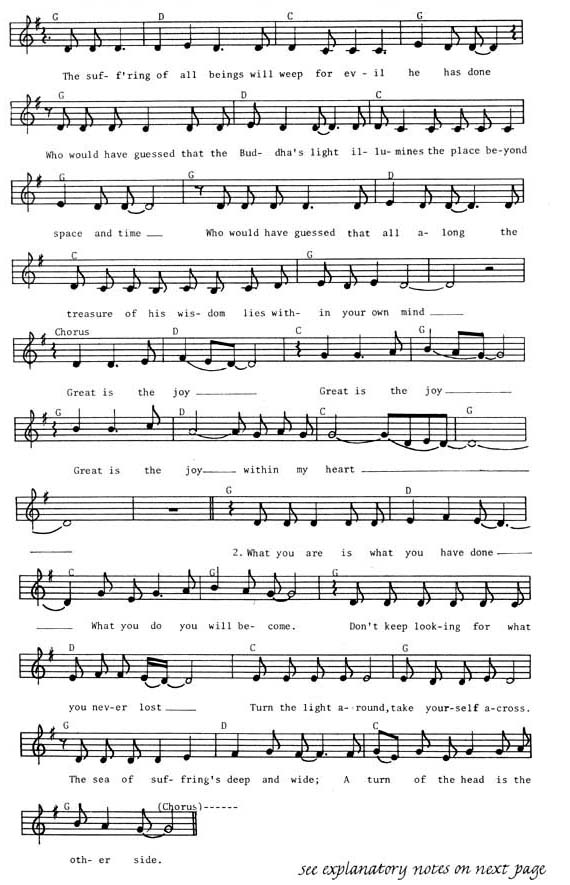|
Section on Music,
Lotus Sutra, Chapter 7
Text:
"...Revered and
circumambulated by Gods, Dragon Kings, Gandharvas, Kinnaras, Mahoragas"...
Commentary:
Gandharvas and Kinnaras are
music spirits in the court of the Jade Emperor. Gandharva means, "incense
inhaler" because they love the smell of incense. When the Jade Emperor
wants some music, he just lights some incense and the Gandharvas come flying
in. Once they get there, the Jade Emperor says, "You guys make great
music. Why don't you play a few tunes for me?" Since they love the
incense, they obey the Jade Emperor, and make music for him, sniffing the
incense all the while.
Kinnara means
"doubtful spirit" because they resemble human beings, except that
they have a horn on their heads. When they play music and dance for the Jade
Emperor they shake their heads back and forth and around and around, to show
off their beautiful horns. At least, they think they are beautiful. They sing,
play music, dance, and shake their heads. This all just means that they have no
samadhi power. Hah!
The entire eight-fold
division is represented in this line of text. They are all very strange. Some
have one leg, some have three legs, and some, like the Mahoragas, just crawl an
their bellies. Some fly in the sky like the Garudas and the musical spirits.
The Gandharvas and Kinnaras work out of the same union, and, if the Jade
Emperor calls in the Kinnaras, they will usually demand that the Gandharvas be
hired as well so they can jam together—rocking out on the drums, the conch
shells, the bells and the gongs. The I-Ching or Book of Changes says, "It
appears in heaven as the archetype and manifests in the phenomenal on
earth." Thus, we find music groups and musical instruments among people.
Why do we have these music groups and these kinds of musical instruments? It's
because some people who had their (five) eyes open took a look into the
heavens and say, "Oh, wow, look at those instruments! Let's make some like
that!" and so the great treasury of musical science was opened, thanks to
the Kinnaras and Gandharvas. This isn't too hard to figure out. People have
pretty much imitated the way things are in heaven.
|


